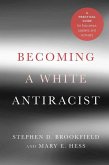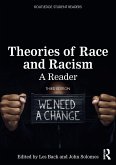Dilemmas of Allyship investigates the political phenomenon of social justice allyship-in the form of white anti-racism-from a novel perspective. The book argues that 21st-century allyship is best understood as a set of socially mediated personal problems and challenges, and that these problems and challenges furnish the material with which many allies' identities are formed. Through an analysis of in-depth interviews with white American anti-racist activists, Dilemmas of Allyship provides a picture of the ambivalent struggles with which allies grapple, tracing the "theoretically irreducible" contradictions they regularly encounter. These contradictions, or dilemmas, are central to the ongoing project of many white activists' allyship, presenting them again and again with challenges that test their authenticity and commitment. The book also investigates how these same dilemmas can become "practically reducible" through a set of mitigating factors and strategies that intervene in and redefine allyship crises. Taken together, these analyses present a picture of allyship rarely seen: one of a lifestyle intrinsically marked by the kinds of challenges people typically avoid. Dilemmas of Allyship takes allies on their own terms, paying attention to the true ambivalence of their struggles, refusing to reduce these experiences to mere success or failure. As a result, it is able to contribute to discussions of identity politics and "white fragility" by presenting a clear picture of the existential stakes of allyship. With this picture in hand, we can better appreciate what challenges exist within the 21st-century movement for racial justice-and we can also learn something more fundamental about what it means to be a person in a contested, conflictual social world.
"Through a rich depiction of the lives of white allies in a moment of race reckoning, Sunderman shows that to be an ally is to acknowledge and work through a set of predictable dilemmas-to be simultaneously morally upright and inherently suspect, both knowledgeable and ignorant, both protagonist and antagonist. While not giving us any easy answers, Sunderman provides us with a template for white participation in anti-racist action, as well as a sophisticated theory of what allyship means."
- Iddo Tavory, Professor of Sociology, New York University; Editor, Sociological Theory
"In Sunderman's revealing interviews with whites in the anti-racism movement, he explores the process of moving from 'bystander' to 'ally' in the struggle for racial justice. Am I self-protective or open? Is shame or guilt part of this work or does it get in the way? Sunderman takes a deep dive into the emotional issues that arise in addressing an urgent issue: how do we scale up and move toward?"
- Arlie Russell Hochschild, Professor Emerita of Sociology, University of California Berkeley; Author of Strangers in Their Own Land: Anger and Mourning on the American Right
- Iddo Tavory, Professor of Sociology, New York University; Editor, Sociological Theory
"In Sunderman's revealing interviews with whites in the anti-racism movement, he explores the process of moving from 'bystander' to 'ally' in the struggle for racial justice. Am I self-protective or open? Is shame or guilt part of this work or does it get in the way? Sunderman takes a deep dive into the emotional issues that arise in addressing an urgent issue: how do we scale up and move toward?"
- Arlie Russell Hochschild, Professor Emerita of Sociology, University of California Berkeley; Author of Strangers in Their Own Land: Anger and Mourning on the American Right









